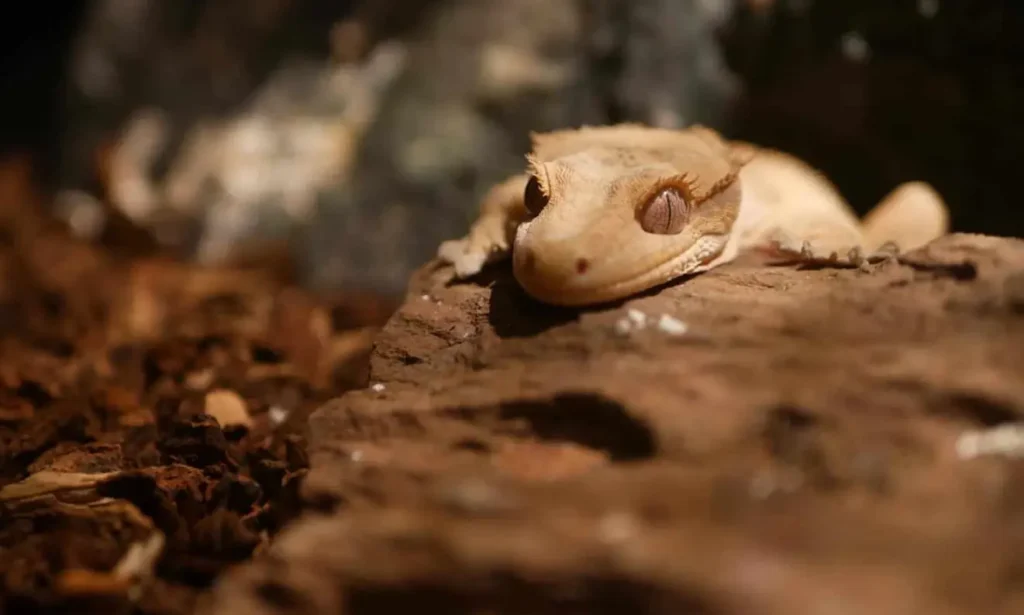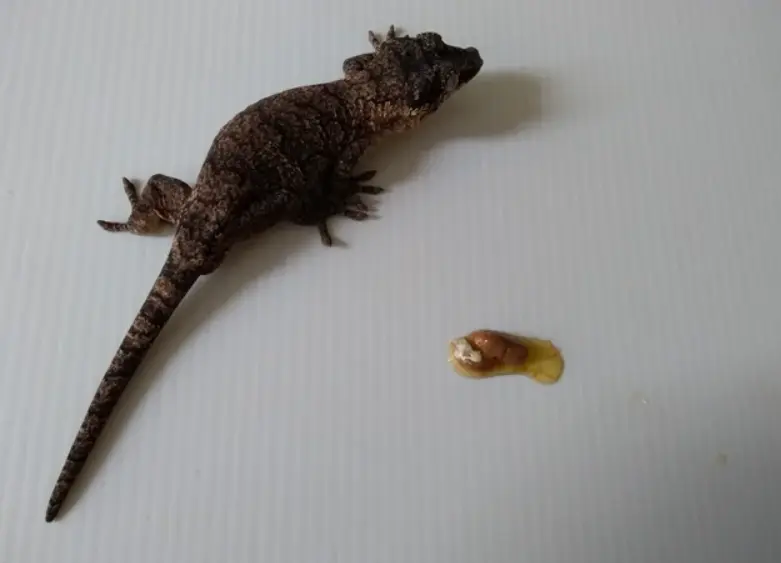The frequency of how often adult crested geckos poop can vary depending on several factors, including:
1) Diet
- Frequency: Adults are typically fed 2-3 times a week, so you can expect pooping to occur roughly that often, although it might not be every single day.
- Type of food: Insects tend to pass through the digestive system faster than fruit-based diets, so you might see poop more frequently after insect meals.
2) Age and Health
- Younger geckos: Juveniles generally eat and poop more frequently than adults.
- Health: A healthy gecko should have regular bowel movements. Dehydration, parasites, or other health issues can also disrupt this.
3) Environment:
- Temperature: Cooler temperatures slow down digestion, so pooping might be less frequent.
- Humidity: Low humidity can lead to dehydration, which can affect bowel movements.
So, how often?
Keeping all these factors in mind, a healthy adult crested gecko might poop every 1-2 days, possibly up to 2-3 days if conditions are cooler or drier.
But, juveniles may poop more frequently, up to several times a day, but as they grow, the frequency decreases.
The Importance of Monitoring Poop Frequency
While slight variations in poop frequency are normal, significant changes can signal an underlying issue.
First off all, check the frequncy!
Is your gecko pooping significantly less or more often than usual? A gecko that hasn’t pooped in over a week may be constipated or impacted.
Conversely, very frequent, watery poops could indicate parasites or a digestive disorder.
On the other hand, you should also check the Consistency.
Healthy Crested Gecko poop should be firm and slightly moist. If the poop is dry and hard, it could be a sign of dehydration.
Conversely, mushy or watery stools could indicate parasites, bacterial infections, or improper diet.
When to Worry About Poop?

If your adult Crested Gecko hasn’t pooped in over a week, or if you notice any significant changes in their pooping habits, it’s time to consult a vet.
Other signs to watch for include:
- Straining or difficulty pooping
- Bloody or discolored poop
- Loss of appetite
- Lethargy or weakness
These could be signs of constipation, impaction, parasites, or other health issues that require veterinary attention.
Hope this helps…
Can’t Find Your Answer?
Statement
Information you find here is completely accurate. Our writer carefully checks and verifies all the facts. We review the information every month and update it with the latest details.
Ethics
If you think the information written here is not entirely accurate, or if there is any misinformation, please feel free to let us know instantly. We are constantly striving to keep all articles updated.

